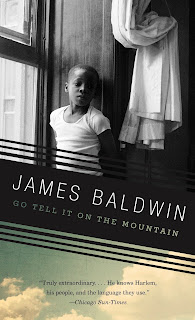Another Country is a novel of passions--sexual, racial, political, artistic--that is stunning for its emotional intensity and haunting sensuality, depicting men and women, blacks and whites, stripped of their masks of gender and race by love and hatred at the most elemental and sublime."
It would be overly simplistic to say that this book is about racism. It is, in a way. But it is more broadly a book about human struggle. The struggle against the many manifold issues, pains and inner turmoil that plague the everyday human. It's about people trying to make it work and still getting it all wrong. And that's interesting, no? For a book that came out in 1962, Baldwin is unabashed and runs the whole gamut of human interaction. It is sweet, scary, idealistic, depressing, nostalgic, and sometimes downright ugly. But it's also not overblown or politicized. It never feels like it trying to make a point or tell a lesson. Baldwin is merely showing us humans, dirty, ugly, striving, beautiful humans in all their complexity. A complexity that is often inextricably linked with the social environment around them.
It is an undeniably sensual book, as all Baldwin's work is to a point. His characteristic style of eloquent brutality and raw sensuality are at once erotic and haunting, each increasing the impact of the other. For me, the main take away of this book was the understanding of the raw sexuality of the human experience. To strip us right back, to take away race, sexuality, gender, class, all we want is to be seen, wanted and needed. That is the basic human need and to deprive us of that is to create monsters of us.
A deeply impactful book. I cannot recommend it enough though it is at times a tough read.
Age Rating 17+ Domestic abuse, rape, sexual content, hate crimes, suicide, depression, alcoholism.






